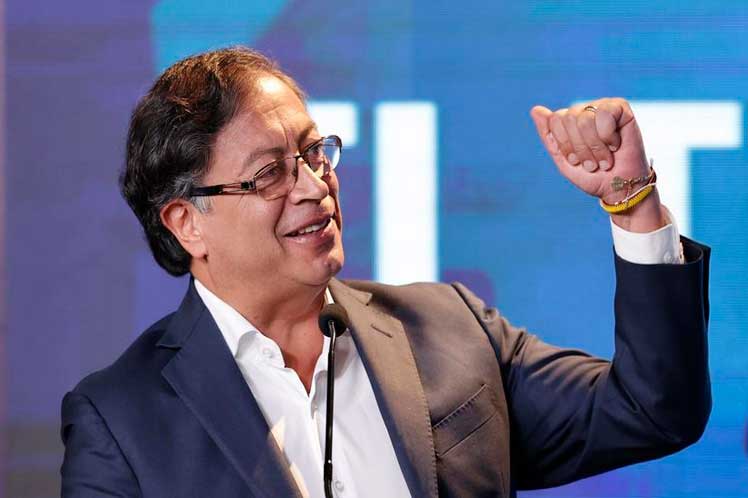According to data from the National Registrar’s Office, Petro and Francia Márquez, his running mate, will govern the country after a triumph described as historic in this South American nation under right-wing rule over 200 years.
With 89.35 percent of the ballots counted, Petro obtained 10 million 75 thousand 836 votes for 50.88 percent of the valid votes.
Right-wing Rodolfo Hernández, from the League of Anticorruption Leaders, reached 46.85 percent of the votes. Gustavo Petro, born on April 19, 1960 in Ciénaga de Oro, is a renowned politician and social fighter who since his youth was a militant in the April 19 Movement (M-19), an urban guerrilla that participated in the internal armed conflict between 1974 and 1990 when it demobilized under a peace process, a reference in the history of Colombia.
He later became the Democratic Alliance M-19 (AD M-19), the second most important political force in the Constituent Assembly of 1991 and under its acronym, he was elected to the House of Representatives in the elections of that same year.
He is a graduate economist, with specialization in Public Administration and also in Environment and Population Development; he has a master’s degree in Economics and doctorate in New Trends in Business Administration.
Petro served as councilman of Zipaquirá; representative to the Chamber of Congress for Cundinamarca, also for Bogota; Mayor of Bogota and currently senator.
He has received awards such as the Luis Carlos Galan Medal awarded by the congressional ethics commissions for his fight against corruption, the Defender of the Year Award for his work in favor of animal welfare, and the World Climate Leadership Award.
In 1994 he was appointed to the Colombian embassy in Belgium as diplomatic attaché for Human Rights, a position he held until 1996.
In 1998 he ran again to the House of Representatives with the endorsement of the Alternate Way Movement that he had founded together with other former militants of the AD M-19 Party.
During that period, he was elected the best congressman both by his colleagues and by the national press thanks to his denunciations of corruption and his political control debates, among them the one on Paramilitarism in Antioquia.
From 2006 to 2010, he served as Senator of the Republic and at that time he uncovered the scandal of the so-called parapolitics, which showed links of politicians with paramilitary groups, a fact that led him to be elected as the political figure of the year.
As Mayor of Bogota, a position he held from 2012 to 2015, he created the Secretariat for Women and inaugurated the LGBTI Citizenship Center, installed birth control and abortion centers in cases permitted by law, proposed as government policy to conserve the wetlands of Bogota and plan for the preservation of water in the face of global warming. In 2018 he was a Presidential candidate for the Significant Citizens Movement-Colombia Humana and achieved a historic vote of more than eight million ballots, and by virtue of the Statute of the Opposition, upon reaching the second highest vote in the presidential election, he became a senator, a position he currently holds.
In the legislative elections of last March 13, Petro was elected as candidate of the Historical Pact, with a vote of almost five million ballots, and then appointed environmental activist Francia Márquez as his running mate.
He assured that, should he triumph in the presidential elections, he would resume diplomatic relations with Venezuela, broken since 2019.
The candidate of the coalition of alternative and leftist forces proposes, if he wins the second round, a decent pension for senior citizens who currently do not have it, free and quality public education, the creation of a commission with international prosecutors to curb corruption and an emergency plan against hunger.
He opposes fracking (hydraulic fracturing, a technique to enable or increase the extraction of gas and oil from the subsoil).
Petro said that he would implement the peace and territorial security agreements, deactivate the war, advance in the dialogues with armed groups such as the National Liberation Army to put an end to the internal conflicts in the country.
In addition, he will offer decent housing for the homeless, proposes to recover the economy through rural productivity, care for the environment and promotion of art and culture to build a Colombia in peace.
Finally, he plans to strengthen the public hospital network to guarantee access to the health system for all.
mh/jha/otf










